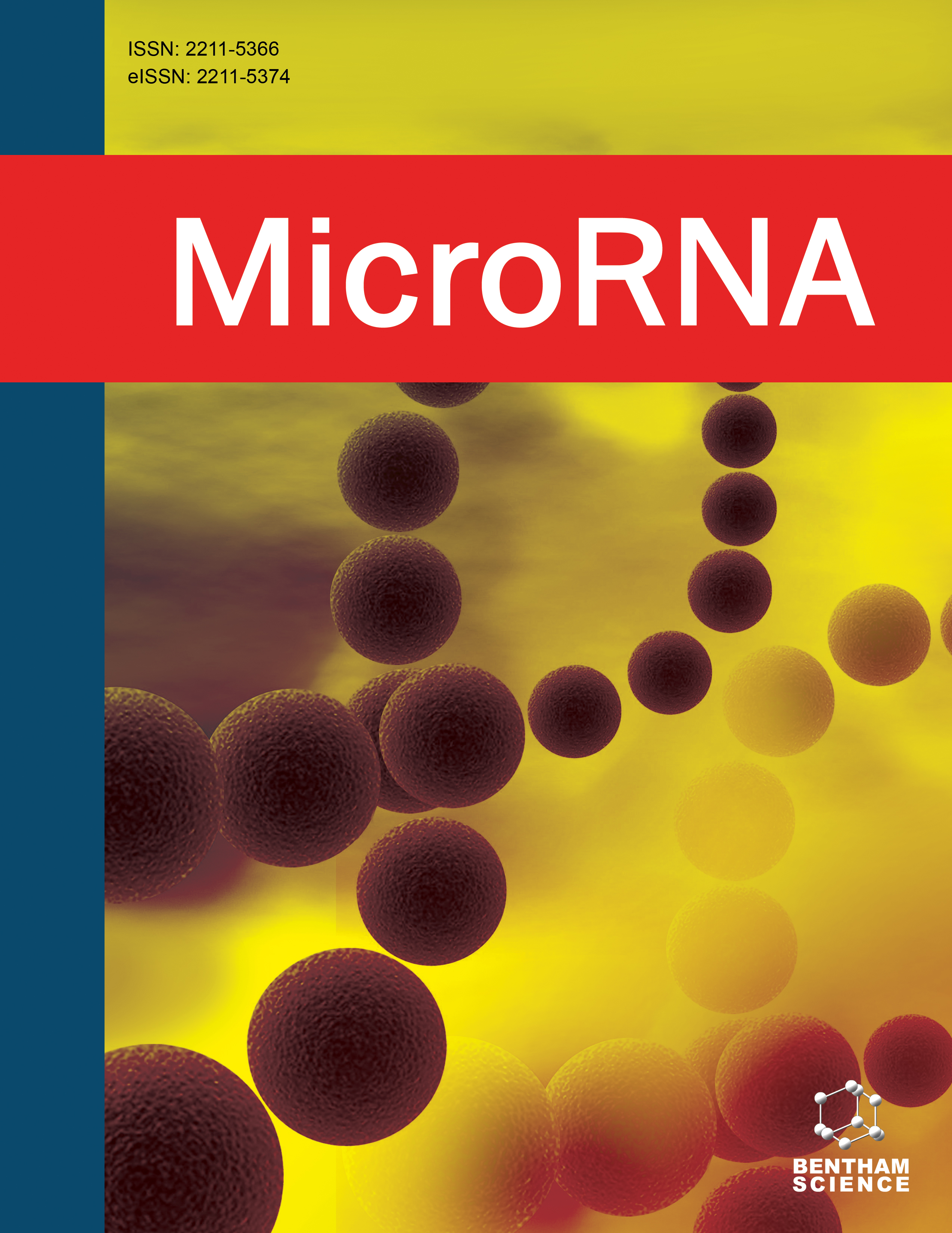-
s Hepatitis B Virus-Encoded MicroRNA (HBV-miR-3) Regulates Host Gene PPM1A Related to Hepatocellular Carcinoma
- Source: MicroRNA, Volume 9, Issue 3, Jun 2020, p. 232 - 239
-
- 01 Jun 2020
Abstract
Background: Hepatitis B is a liver infection disease caused by the Hepatitis B Virus (HBV) that can become chronic and develop into hepatocellular carcinoma. HBV was classified as a double-stranded DNA virus. Currently, there is a report showing that HBV virus-encoded miRNA called HBV-miR-3 controls the replication of HBV. However, the regulation of HBV-miR-3 in host cells remains unclear. Objective: This study aimed to investigate the regulation of HBV-miR-3 in host gene target which is related to chronic HBV infection and HCC process. Methods: In this study, we analyzed the read count of HBV-miR-3 from next-generation sequencing of chronic hepatitis patients in Pegylated interferon alpha-2a (PEG-IFN-α-2a) treatment. To understand the regulation of HBV-miR-3 in host cells, the HBV-miR-3 recognition sites were predicted in host target genes using miRDB. The effect of HBV-miR-3 in host cells was examined using qPCR and 3′ UTR dual luciferase assay. Results: The read count of HBV-miR-3 was found in chronic hepatitis patients before treatment. Moreover, the decrease of HBV-miR-3 was correlated with response group of chronic hepatitis patients after treatment. On the other hand, the abundance of HBV-miR-3 showed no difference in nonresponse group of chronic patients after PEG-IFN-α-2a treatment. To study the role of HBV-miR-3 in patients, four HBV-miR-3 target regions from Protein phosphatase 1A (PPM1A) and DIX domain containing 1 (DIXDC1) were identified in the human genome using miRDB. Interestingly, we found that HBV-miR-3 hybridized with PPM1A mRNA. The mRNA expression from RT-qPCR showed no difference between HepG2 transfected with pSilencer_scramble or pSilencer_HBV-miR-3. However, the reporter assay showed that PPM1A mRNA was suppressed by HBV-miR-3. The protein expression of PPM1A showed a decrease in cells overexpressing HBV-miR-3. Finally, the HBV-miR-3 can promote cell proliferation in cells overexpressing HBV-miR-3. Conclusion: This study is the first report showed the HBV encoded miRNA can regulate host gene expression. HBV-miR-3 silenced PPM1A by inhibiting the translation process of PPM1A. The downregulation of PPM1A promotes cell proliferation related to HCC development.


